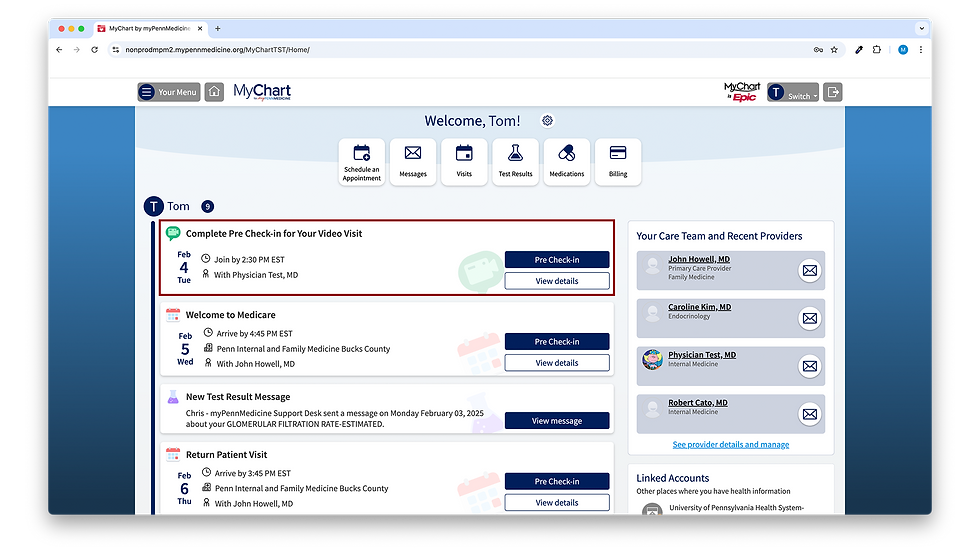Klinikum+/ The Power of Precision Medicine Data Analysis
- Kat Usop

- Aug 9
- 3 min read
For decades, medicine has largely operated on a "one-size-fits-all" model. A diagnosis led to a standardized treatment plan, often with mixed results, because what works for one person might not work for another. The emerging field of precision medicine is changing this paradigm entirely. It's a revolution driven by a simple yet profound idea: that medical treatment should be tailored to an individual's unique characteristics.
At the heart of this transformation is data analysis. By leveraging vast and complex datasets, doctors and researchers can move beyond generic treatments to design highly personalized and effective therapeutic strategies. Here’s a closer look at how data analysis is the engine of the precision medicine revolution.
The New Building Blocks of Health Data
Precision medicine requires a much broader and deeper view of a patient than traditional medicine. It moves beyond basic clinical records to incorporate a mosaic of data types, each offering a different piece of the health puzzle:
Genomic and 'Omics' Data: This is the foundation of precision medicine. Technologies like next-generation sequencing can analyze a person's entire genome, revealing genetic variations that may influence disease risk, progression, and response to certain drugs. Beyond genomics, scientists also analyze proteomics (protein expression) and metabolomics (metabolic profiles) to build a more complete molecular picture.
Clinical Data: This includes traditional information from electronic health records (EHRs), such as diagnoses, lab results, medical history, and treatment outcomes. When combined with other data, EHRs can provide a longitudinal view of a patient’s health journey.
Lifestyle and Environmental Data: This is information on a patient's daily life, including diet, physical activity levels, and exposure to environmental factors. This data, often collected through surveys or wearable devices, provides crucial context for how genes and health records translate to real-world health outcomes.
Imaging Data: Medical images like MRIs and CT scans are no longer just visual records. Advanced image analysis algorithms, often powered by AI, can detect subtle abnormalities or patterns that may not be visible to the human eye, enabling earlier and more accurate diagnoses.
From Raw Data to Actionable Insights: The Role of AI
The sheer volume, variety, and velocity of precision medicine data make it impossible for humans to analyze alone. This is where artificial intelligence (AI) and machine learning (ML) become indispensable. These technologies are the computational backbone that allows for the discovery of hidden patterns and correlations.
Predictive Analytics: ML algorithms can analyze a patient's data to predict their risk for developing certain diseases or how they might respond to a specific medication. This allows for proactive care and the selection of therapies that are most likely to be effective.
Unsupervised Learning: This type of AI is particularly valuable for uncovering novel insights. By analyzing unstructured and unlabeled data, unsupervised algorithms can identify new disease subtypes or biomarkers that may have been overlooked by conventional analysis, leading to a deeper understanding of disease mechanisms.
Drug Discovery: Pharmaceutical companies are leveraging data analysis to accelerate drug development. By analyzing large-scale datasets, they can identify potential therapeutic targets with greater efficiency, reducing the time and cost of bringing new treatments to market.
The Road Ahead: Challenges and Ethical Considerations
The path to widespread precision medicine is not without its obstacles. Data analysis in this field presents significant technical, logistical, and ethical challenges:
Data Integration: Merging diverse datasets—from a patient's genome to their daily step count—is a massive technical challenge. The data is often stored in different formats and locations, requiring robust data standardization and integration platforms.
Privacy and Security: Genomic data is arguably the most sensitive personal information a person has. Ensuring the privacy and security of this data is paramount. The risk of data breaches, misuse of information, and the potential for genetic discrimination are serious ethical concerns that require strong regulatory frameworks and transparent practices.
Equity and Access: The high cost of advanced testing and therapies could exacerbate existing healthcare disparities, creating a system where only the affluent can afford the benefits of precision medicine. Addressing this requires policies that ensure equitable access to these life-changing technologies.
Precision medicine is no longer a distant dream. It is an evolving reality, powered by a sophisticated data analysis infrastructure that promises a future of more personalized, effective, and efficient healthcare for all.


Comments